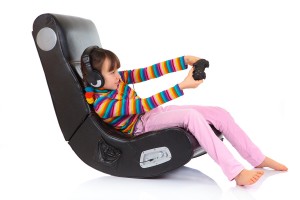 Modern technology has become a normal part of our every day lives. Our children use it at school and many of our homes have the newest technology available from computers to video games. Young children are given cell phones and tablets sometimes before first grade. We give our kids the means to keep in touch, play games and have the most convenient lives, and then we decide we want to limit the use of these devices. All in the name of balance.
Modern technology has become a normal part of our every day lives. Our children use it at school and many of our homes have the newest technology available from computers to video games. Young children are given cell phones and tablets sometimes before first grade. We give our kids the means to keep in touch, play games and have the most convenient lives, and then we decide we want to limit the use of these devices. All in the name of balance.
Sometimes we as parents impose too much balance and sometimes not enough. How do we know when to do what? Is it ok for our kids to constantly be on the phone, have their earphones plugged in to music, use their tablets at the dinner table and play video games all night long? The biggest complaint I hear from parents is that their child never feels fully present. I can relate.
When my three kids were growing up they had all the gadgets, the phone, games etc. I had to choose my priorities, and decide when I allowed the constant use of technology and when I didn’t. Most young kids aren’t aware of how to impose balance within what they are doing, so I felt it was up to me to guide them. Initially though, I thought we should do it my way.
I started out imposing all the rules and limitations, but the never-ending arguments became a worse frustration. There had to be a better and easier way, a compromise. I came to realize that it would serve everyone best if they came to learn the balance of technology for themselves, not just adhere to all of my rules and definitions. This decision would serve them throughout their lives by refining the use of their own Internal Guidance System.
When letting kids make their own choices, end results aren’t always how we envision but they learn how to distinguish what serves them and what doesn’t. This helps them long-term. For example, if we let them choose whether they stay up half the night playing video games they will soon learn that there are consequences to this. Being tired and not prepared for their school day, are among them. We can encourage a certain behavior but most of us realize we can’t control it.
Some things I felt particularly strong about and would rarely compromise on. Each parent has to follow their own Internal Guidance System in choosing what they are.
Maybe our kids come home from school and we think they should immediately start their homework, but they want to play video games or watch TV. Our kids know for themselves what it is that serves them in any given moment based on how they are feeling about a situation or activity. If they have resistance to doing their HW right away, they won’t be fully present and won’t do their best. It’s reasonable to think that they need time at home to just relax after school before they can do more work. Try letting them decide. When they are in agreement, they are more productive.
What if we tell our kids that we trust them to know for themselves when they should put their technology aside and do their projects, school work etc? I know my children felt trusted and more empowered to follow through with their responsibilities when they could do them on their own timeline. This was particularly true when they were teens. What if they don’t follow through for themselves? Sometimes they may not, but again, they will learn how to prioritize and take responsibility only if they are allowed to do so.
We have little to no control over what our children do and when, especially when they aren’t in our presence. It wasn’t easy to give up my perceived sense of control. When I learned to trust my kids and let them choose their paths and their tasks as well as learn about consequences, I knew they would become empowered young adults.
Please feel free to comment.
© 2014. Sharon Ballantine. All Rights Reserved.

